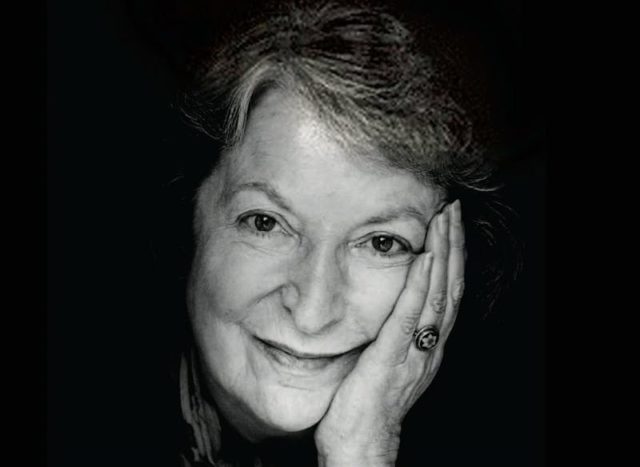Known for her highly opinionated and comical reviews that differed greatly from those of her peers, American film critic Pauline Kael was certainly ahead of her time as she was one of the most influential film critics of her era. Her distinctive writing style and influence can greatly be seen today in the work of film critics like David Edelstein of New York Magazine, Elvis Mitchell, A. O. Scott of The New York Times, David Denby and Anthony Lane of The New Yorker, and Greil Marcus, among many others.
Who Was Pauline Kael?
Pauline Kael first came into this world on the 19th of June, 1919, and was born in a chicken farm in Petaluma, California. She was born to Jewish immigrant parents from Poland named Judith (née Friedman) and Isaac Paul Kael.
Not much is known about Kael’s childhood, including where she received her high school education and it is not clear if she had any siblings or was an only child. What is known is that at around the age of 8, her parents lost their farm and had to move the family to San Francisco.
For her college education, Pauline Kael enrolled at the University of California, Berkeley, in 1936 to study philosophy, literature, and art. She, however, did not complete her education before she dropped out in 1940. She then moved to New York with the poet Robert Horan, spending three years there before returning to Berkeley to complete the requirements for a degree.
Here are Facts You Need To Know
1. Her Big Break came while Arguing about Films in a Coffeeshop with a Friend
After having spent a few years writing plays and working in experimental film, Pauline Kael got her chance to become a film critic in 1953 after the editor of City Lights magazine overhead her arguing about films with a friend in a coffee shop. The editor offered her a job by asking her to review the comedy-drama film Limelight (1952), starring Charlie Chaplin. She went on to write a scathing review of the film, dubbing it “Slimelight” in the process.
Following this opportunity, Kael was able to begin publishing film criticisms regularly in magazines. She also got a chance to broadcast these reviews on a public radio station in Berkeley, a move that helped bolster her profile as she went on to serve as the Berkeley Cinema Guild manager from 1955 to 1960.
Pauline Kael continued to juggle writing criticisms with other work to make ends meet until she was given a chance to publish a book of her criticism. This led to her writing her first collection of reviews titled I Lost It at the Movies (1965), which was a surprise bestseller, selling over 150 thousand paperback copies.
At around this time, things began to fall in place for Kael as she was subsequently hired by McCall’s, a high-circulation women’s magazine, which sent her into the mainstream market.
2. She Got Fired From McCall’s Magazine For Severely Criticizing Every Commercial Movie
After joining the ranks at McCall’s, Pauline Kael wrote a number of film criticisms for the magazine and gained a reputation panning every commercial movie. Some of the popular movies she panned included Lawrence of Arabia (1962), The Pawnbroker (1964), A Hard Day’s Night (1964), and Dr. Zhivago (1965). For the phenomenally popular musical drama film The Sound of Music (1965), Kael wrote that the press dubbed the movie “The Sound of Money,” further adding that the film’s message was a “sugarcoated lie that people seem to want to eat.”
It is said that because of these repeated negative reviews, the magazine’s editor, Robert Stein, opted to fire her from the position.
3. Awards and Recognition
In 1964, just before she joined McCall’s, Pauline Kael was made a Guggenheim Fellow for her exceptional creative ability. Following her dismissal from McCall’s, she had a short stint at The New Republic before joining the New Yorker in the late ’60s. Her work as a critic with the newspaper earned her a George Polk Award in 1970. In 1973, her fourth collection of movie reviews, Deeper into Movies (1973), won the U.S. National Book Award in the Arts and Letters category, becoming the first non-fiction book about films to win the award.
Some of the other awards in which the film critic has gone ahead to win in her career include the Crystal Award from Women in Film Crystal Awards in 1978, the Mel Novikoff Award from the San Francisco International Film Festival in 1991, and a posthumous induction into the OFTA Film Hall of Fame Behind the Scenes Film Criticism, Online Film & Television Association in 2012.
4. She Died From Parkinson’s Disease
Pauline Kael was diagnosed with Parkinson’s disease in the early 1980s. Despite her condition, she still carried on with her work, however, as the illness worsened, she was said to have grown increasingly depressed about the state of films in America. In 1991, Kael announced her retirement from reviewing films regularly.
Over the next decade, she gave a number of interviews but was unable to publish any new work except for an introduction to her 1994 compendium, For Keeps. In 2001, aged 82, Kael passed away at her home in Great Barrington, Massachusetts from Parkinson’s.

